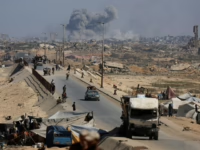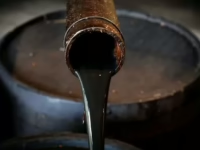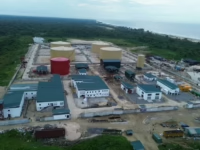The Nigerian National Petroleum Company Limited (NNPCL) has announced a notable 16% shortfall in the country’s oil production targets, attributed to a three-day strike initiated by the Petroleum and Natural Gas Senior Staff Association of Nigeria (PENGASSAN), according to Bashir Ojulari, the company’s Group Chief Executive Officer.
This industrial action also led to a sharp decline in gas output and electricity supply, severely disrupting Nigeria’s energy sector and posing risks to the nation’s economic stability.
In a formal communication dated September 29, 2025, addressed to both the Nigerian Midstream and Downstream Petroleum Regulatory Authority and the Nigerian Upstream Petroleum Regulatory Commission, Ojulari outlined the detrimental effects of the strike.
He explained that the labor dispute, rooted in escalating tensions between PENGASSAN and the management of Dangote Refinery, resulted in a daily suspension of approximately 283,000 barrels of crude oil production and a loss of 1.7 billion standard cubic feet of gas.
“Within the first 24 hours of the strike, production disruptions reached about 283,000 barrels per day of oil, 1.7 billion standard cubic feet per day of gas, and a reduction exceeding 1,200 megawatts in power generation,” Ojulari reported.
“These figures represent roughly 16% of the nation’s oil output, 30% of marketable gas, and 20% of electricity generation capacity. If the strike persists, the consequences will escalate, posing a significant threat to Nigeria’s energy security,” he added.
The strike’s impact extended to the shutdown of vital oil terminals, gas processing plants, and power generation facilities, directly linked to the union’s disruption of crude oil and gas supply chains, thereby heightening concerns over national energy stability.
Although PENGASSAN announced a temporary halt to the strike following federal government intervention, the union cautioned that this pause remains fragile and contingent upon meaningful progress in addressing their grievances.
Ojulari’s letter, reviewed by industry observers, not only quantified immediate production losses but also emphasized the potential long-term repercussions.
He highlighted that essential maintenance activities critical to the upkeep of oil and gas infrastructure-such as the USAN turnaround, AKPO GT-3 pigging, hydrogen well testing, annual compressor maintenance, and SEPNU EAP IGE procedures-have been postponed, which could further impair production efficiency.
Additionally, deferred crude oil lifting and monetized gas volumes from Joint Venture and Production Sharing Contract assets, totaling 100,000 barrels per day and 1.341 billion standard cubic feet of gas respectively, have been delayed, intensifying financial pressures on the sector.
While some non-union staff managed to continue crude shipment operations, overall activities remained heavily constrained by the strike’s disruptions.
Ongoing and planned lifting operations at various terminals face the risk of further postponements, increasing the likelihood of demurrage penalties from international buyers. For instance, loading at the Brass Terminal was halted due to missing documentation directly linked to the strike, resulting in additional demurrage expenses.
Ojulari underscored the rapidly escalating financial toll of the strike, with revenue streams from crude exports and gas sales under significant strain.
He warned that the crisis extends beyond the immediate refinery dispute, threatening the safety of personnel, the security of assets, and the overall health of Nigeria’s economy.
Calling for swift and lasting solutions, Ojulari emphasized the need to safeguard Nigeria’s energy infrastructure to prevent further deterioration of the country’s energy security and economic well-being.
As the federal government continues its mediation efforts, PENGASSAN leadership reiterated that their temporary suspension of the strike was a gesture acknowledging government intervention rather than acceptance of Dangote Refinery’s stance. The union cautioned that failure to meet their demands could lead to a resumption of the strike, prolonging uncertainty around one of Nigeria’s most vital energy resources.























